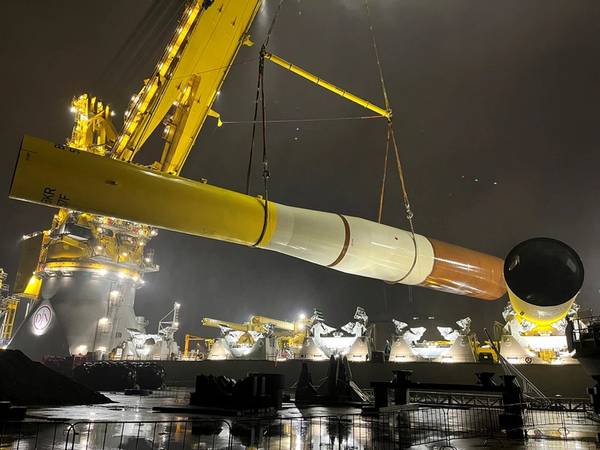
Danish renewable energy developer Ørsted has secured first offer rights to procure greener heavy-plate steel for offshore wind foundations from Dillinger, the largest heavy steel plate producer in Europe.
Through the memorandum of understanding (MoU) signed by the parties, Ørsted will get first access to Dillinger’ss lower-emissions steel, subject to availability and commercial terms and conditions.
The steel plates form a part of the offshore wind monopile foundations and are intended to be used for future projects.
Taking the current technology outlook into account, the reduction of the process-related carbon emissions from production is expected to be around 55-60 % compared to conventional heavy plate steel production.
Under a large-scale supply-agreement entered into in 2022, Ørsted will procure significant volumes of regular heavy plate steel from 2024, giving the company access at scale to and visibility of the most crucial raw material in offshore wind while providing Dillinger with the needed support to accelerate investments in new lower-emission steel production.
Ørsted expects to be able to procure lower-emission steel produced at Dillinger’s plant in Dillingen, Germany, from 2027-2028.
The partnership will strengthen Ørsted’s position in offshore wind by securing supply of a key raw material and visibility of capacity.
This follows the EU’s recent passing of the Net Zero Industry Act, which makes non-price criteria in renewable energy auctions mandatory within the EU.
Thus, the agreement with Dillinger not only helps accelerate the decarbonization of the steel industry, it also provides Ørsted with the optionality to deliver on expected decarbonization criteria in coming auctions when they materialize.
“Long-term offtake agreements like this one are key to decarbonizing hard-to-abate materials such as steel because it takes clear demand signals to drive investments in the technologies needed to decarbonize production.
“With this MoU, we’re pleased to help support Dillinger’s development of lower-emission steel facilities in Europe. This is an agreement which will also enable Ørsted to further diversify its supply chain, secure capacity, and deliver on expected future costumer demand,” said Virginie Van de Cotte, Chief Procurement Officer at Ørsted.
"The agreement with Ørsted proves that steel made in Germany is relevant for the success of the climate and energy transition, and that it has a future. With the support of the German federal government, we’re now investing in the transformation of our production facilities to be able to produce carbon-reduced steel from 2027 onwards,” added Stefan Rauber, CEO of Dillinger.



